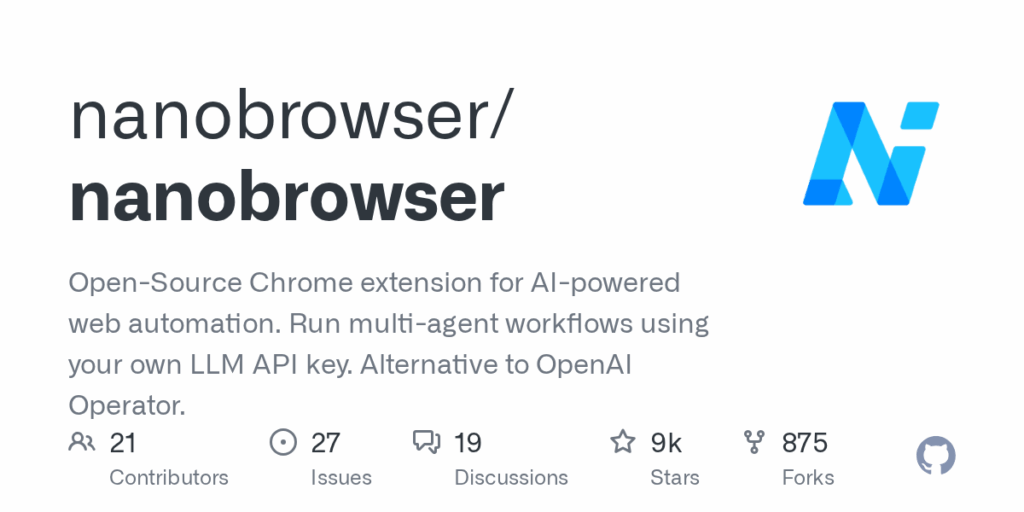nanobrowser
Basic Information
nanobrowser is an open-source Chrome extension designed for AI-powered web automation. It provides a browser-based way to run multi-agent workflows directly in Chrome using artificial intelligence models. The project is intended to let users orchestrate sequences of automated tasks on web pages by leveraging LLMs that the user supplies via their own API key. The repository targets users who want a client-side automation tool rather than a hosted AI service. Evidence in the README and repo description indicates the core purpose is to enable web automation driven by multiple cooperating agents and to offer an open, extensible alternative to single-vendor hosted AI integrations.
Links
Stars
8389
Github Repository
Categorization
App Details
Features
The repo centers on a Chrome extension that executes AI-driven automation in the browser. It supports multi-agent workflows, meaning multiple cooperating AI agents can be used to perform web tasks. It requires the user to provide their own LLM API key so model calls are routed through the user’s credentials. The project is open-source, allowing inspection and modification of the extension code. The README and repository signals emphasize browser-based execution, agent orchestration, and user-controlled LLM access as the primary technical traits rather than hosted services or vendor-locked APIs.
Use Cases
This project helps users automate repetitive or complex tasks on websites by combining browser automation with language-model-driven decision making. By running as a Chrome extension, it operates where the tasks happen and can interact directly with web pages. The multi-agent workflow capability lets users structure cooperating AI components to divide responsibilities or pipeline actions. Requiring a user-supplied LLM API key gives users direct control over which model and account they use. Being open-source allows developers and technically inclined users to audit, extend, or adapt the extension for custom automation, prototyping, or research into agent orchestration in the browser.








